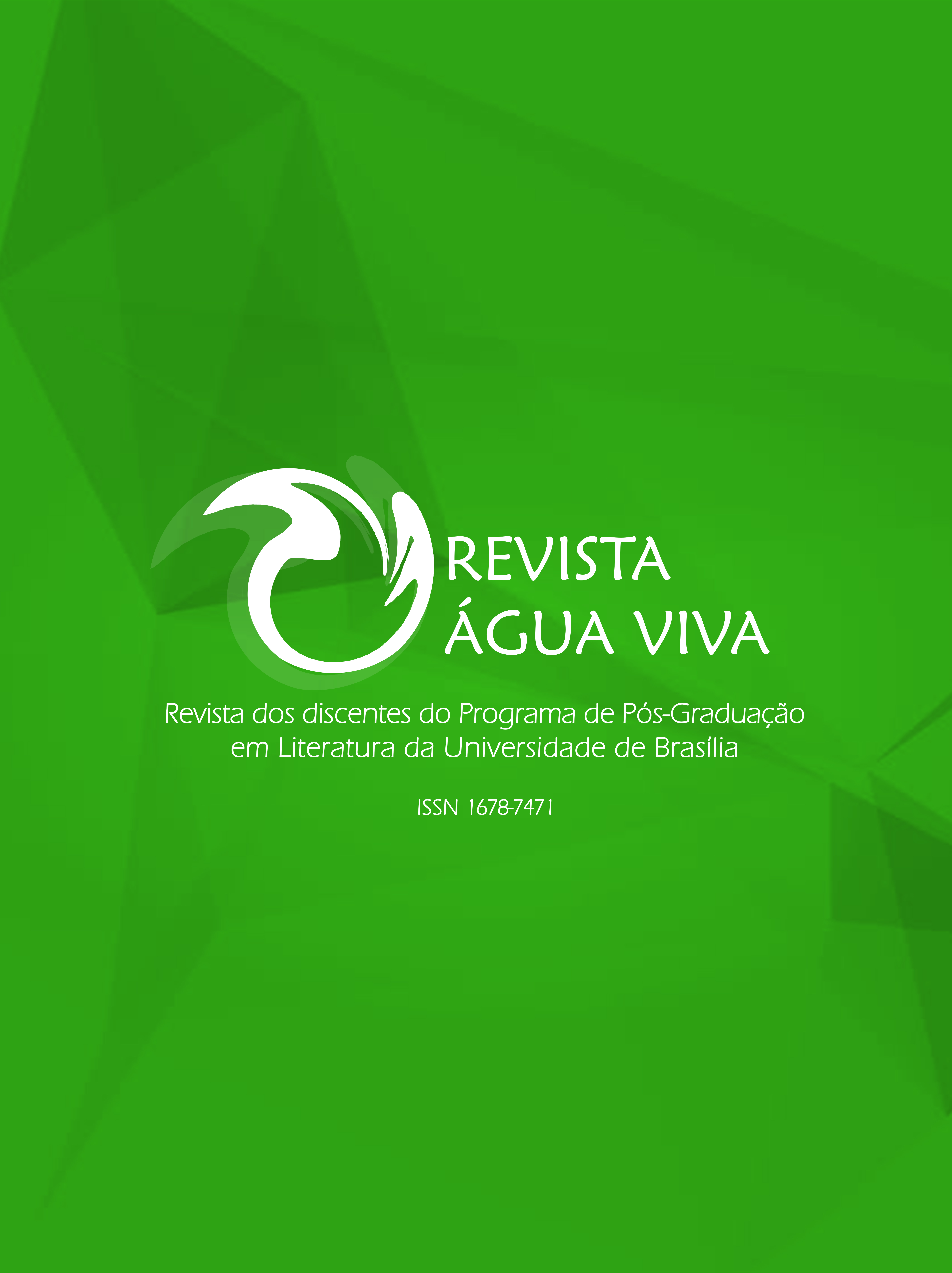ECHOES OF MY SOUL RIDDLED WITH RACES
DOI:
https://doi.org/10.26512/aguaviva.v5i2.23585Keywords:
Mário de Andrade. Improvise of the Evil of America. Identity.Abstract
The work has as object of study the poem Improvise of the Evil of America (February of 1928), of Mário de Andrade. In front of the poem we will approach the question of the construction of the brazilian identity. The poem presents the attempt of a fatigue search of the lyrical self with regard to the issue of the instinct of nationality, the brasility that is present in the mixture of peoples and ethnicities before migration, particularly in São Paulo, during a period of modern and industrial development in Brazil. In this work we will treat the poetic construction in a perspective of connections and contradictions that emerge the relations of diverse peoples, speeches and colors. The I-lyrical in the poem points out the complexity of the poetic making around the mixing and erasure not only of people arranged in the poem, but of the very language diverse in the aesthetic composition of the imagistic conduction of the historicity that emerges the social being. The poem will be analyzed according to the theoretical foundation of João Luiz Lafetá, Florestan Fernandes and György Lukács, who will elucidate questions regarding the narrative structure expanding the reference dimension aesthetic marks the human transfiguration in this critical and reflective power.
The paper has as object of study the poem Improvise of the Evil of America (February of 1928), of Mário de Andrade. Against this poem we will approach the question of the construction of the brazilian identity. The poem presents this tired search for an identity not only of the lyrical self and of Sao Paulo, but of Brazil as a whole. In this work we will approach the poetic construction in a perspective of connections and contradictions that emerge the relations of diverse peoples, speeches and colors. The lyrical self in the poem points out the complexity of the poetic making around the mixing and erasure not only of people arranged in the poem, but of the very language diverse in the aesthetic composition of the imagistic conduction of the historicity that emerges the social being. The poem will be analyzed according to the theoretical foundation of João Luiz Lafetá and György Lukács, who will elucidate questions regarding the narrative structure that has as humanizing aesthetic project in its transforming and critical power.
Keywords: Mário de Andrade. Improvise of the Evil of America. Identity.
Downloads
References
ANDRADE, Mário. Poesias Completas. vol. 1. Rio de Janeiro: Nova Fronteira, 2013.
CANDIDO, Antonio. Educação pela noite e outros ensaios. São Paulo: Editora Ática, 1989.
FRAZÃO, Dilva. Biografia de Miguel de Unamuno. Disponível em: <https://www.ebiografia.com/miguel_de_unamuno/> Acesso em 29 de setembro de 2018.
FERNANDES, Floresta. Mário de Andrade e o Folclore Brasileiro. [Transcrição da Revista do Arquivo Municipal. Ano 12, v. 106. São Paulo: DPH, 1944] Rev. Inst. Est. Bras., SP, 36:141-158, 1994.
LAFETÁ, João Luiz. 1930: A Crítica e o Modernismo. 2. ed. São Paulo: Duas Cidades; Editora 34, 2000.
LAFETÁ, João Luiz. A Dimensão da Noite e outros ensaios. São Paulo: Duas Cidades; Editora 34, 2004.
LUKÁCS, G. Para uma Ontologia do Ser Social 1. Trad. Carlos Nelson Coutinho. São Paulo: Boitempo, 2012.
MARX, Karl. O 18 de brumário de Luís Bonaparte. Trad. e notas Nélio Schneider; prólogo Herbert Marcuse. São Paulo: Boitempo, 2011.
Downloads
Published
How to Cite
Issue
Section
License
Copyright (c) 2020 Revista Água Viva

This work is licensed under a Creative Commons Attribution-NonCommercial-NoDerivatives 4.0 International License.
Direitos Autorais para artigos publicados nesta revista são do autor, com direitos de primeira publicação para a revista. Em virtude da aparecerem nesta revista de acesso público, os artigos são de uso gratuito, com atribuições próprias, em aplicações educacionais e não-comerciais.













